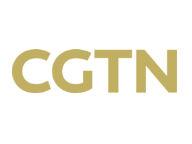School News
—
Isser Gallogly, Associate Dean of MBA Admissions and Program Innovation, underscores the importance of IQ + EQ in MBA applicants
—

Excerpt from BusinessBecause -- "'We look for students who have both intellectual and emotional intelligence—what we call IQ + EQ. Last year, we refreshed our MBA application and now ask for an EQ endorsement from an advocate who can attest to an applicant’s ability to lead with empathy and communicate clearly.' Isser Gallogly, NYU Stern"
School News
—

Excerpt from BusinessBecause -- "'We look for students who have both intellectual and emotional intelligence—what we call IQ + EQ. Last year, we refreshed our MBA application and now ask for an EQ endorsement from an advocate who can attest to an applicant’s ability to lead with empathy and communicate clearly.' Isser Gallogly, NYU Stern"



















